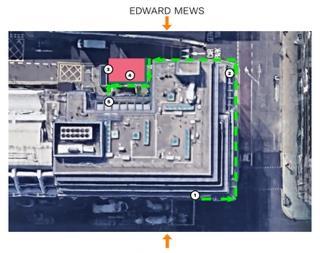“It goes to character,” say American TV lawyers when challenged for asking overly personal questions of the defendant.

A pity that JP Morgan and Goldman Sachs did not more critically judge the character of WeWork founder Adam Neumann before giving their imprimatur to his attempt to fool the world into thinking the serviced office supplier was worth $47bn.
Nobody was fooled. Neumann has been defenestrated. The IPO ditched. WeWork is in a corporate nosedive. Landlords are making contingency plans for a crash.
JP Morgan boss Jamie Dimon and Goldman Sachs chief executive David Solomon are unlikely to lose their jobs for failing to notice that the new emperor of serviced offices had no clothes, even though both were personally involved in the float.
Both failed to prick Neumann’s delusions on value, instead promising to lend WeWork billions. Fees alone of more than $100m were at stake. Is it any wonder that no lesser beings involved dared to say: “WeWork is not some tech wonder-stock; it rents office space! Neumann is charismatic, but look at the losses.”
After listening to a WeWork presentation in London last November, I suggested here that: “WeWork actually feels more like a gambler, with an unimaginably high pile of chips. Playing global space invaders against Regus and traditional landlords.”
That pile of chips is now dramatically reduced and the new management is desperately trying to conserve its diminishing stake in order to continue trading. Staff are being sacked and new deals put on hold. As rent-free periods expire, the pressure will only grow.
There is a case for arguing that if WeWork did vanish, rivals would simply slot into place and the space be rebranded. That may be so. But this scenario is contingent on demand remaining strong. The amount of space in the UK alone is enormous: WeWork has signed leases for close to 4m sq ft in more than 60 buildings in the UK. Many landlords have made contributions to fitting-out costs. Many leases are still in their rent-free periods.
Blood sniffed
There will be blood, the smell of which has already been sniffed by one man: Mark Dixon. This week, the boss of what most still call Regus has been pushing plans to expand his IWG group, partly by franchising the brand, with interviews in The New York Times, Financial Times and The Sunday Times.
Conrad Hilton franchised his hotels chain, diluting his brand. Regus risks similar dilution, as control of the detail is lost to franchisees. ‘It goes to character’ to ask if the boss of IWG has what it takes to fulfil his promises. Answer: yes, if anyone can. Dixon is a fully grounded details man of cast-iron character.

Back in April 2009, Dixon invited me and my wife to Sunday lunch at Château de Berne, his winery, north of Saint-Tropez, while we were on holiday in Cannes. I’d been caustic in print about Regus during the downward plunge. He had never complained much. I’d since chatted amicably with him a few times as he manned the Regus stand at Mipim and would always think: “How many chief executives of a company the size of Regus would have the patience to expose themselves to all-comers hour after hour in the Mipim bunker?”
His mother, sister and an old friend from his days delivering sandwiches were at the lunch. A more down-to-earth occasion could not be imagined. Our table would not have stood out in an Essex gastropub. Afterwards, Dixon drove us back to Cannes in his Range Rover, along with his mother, who wanted to browse a kitchen shop. Down-to-earth actions that ‘go to the character’ of a man I’d trust with my money – if I were Jamie Dimon or David Solomon, who are paid to exercise judgement, not just grab for fees.
Pearl at Shell
The £850m sale of 500,000 sq ft of Shell Centre offices in London by Almacantar to Singaporean group Bright Ruby died last month. Included was 280,000 sq ft of WeWork space. It looked to be thriving when I walked past last month and into adjacent Belvedere Gardens (pictured), a 20-storey tower with 97 flats, developed by Canary Wharf Group and Qatari Diar. To date, 76 flats have been sold at an average price of £2,400/sq ft.
No world-class hotel could be more lavishly fitted out. The common areas are about as common as those of Claridge’s. The flats shame One Hyde Park. “We wanted to show that Canary Wharf could do luxury residential,” said CWG’s Brian De’ath. Case proven. Go, see, marvel.
Peter Bill is a journalist and author of Planet Property






























No comments yet